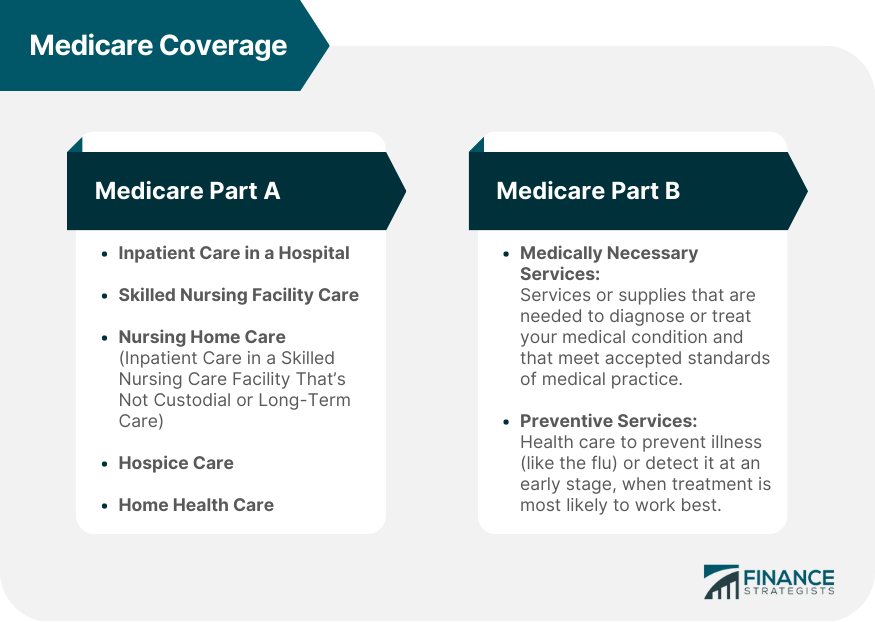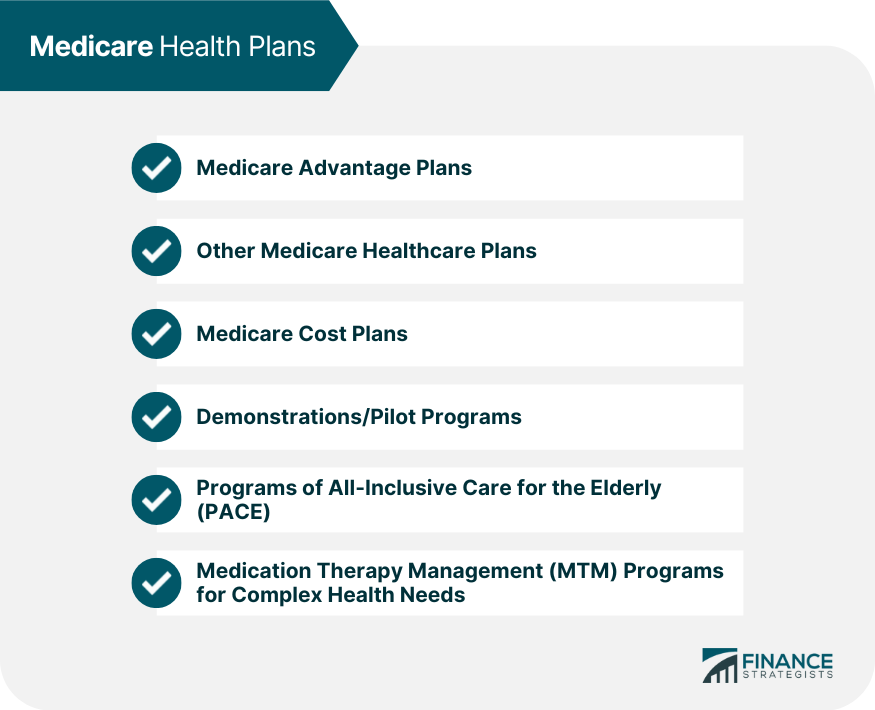Medicare covers a large number of medical and healthcare services, but not everything. You can go to Medicare.gov to find out if a specific service or medical supply is covered by Medicare. Coverage can vary depending upon where you live. If the medical supply or service that you need is not listed on the website, you can consult your healthcare provider about whether Medicare will cover you. Medicare coverage is based on 3 key factors: Have questions about Medicare? Click here. In general, Medicare Part A covers: In general, Medicare Part B covers two types of services: You pay nothing for most preventive services if you get the services from a health care provider who accepts assignment. In general, Medicare Part B covers things like: Generally, a Medicare health plan is offered by a private company that contracts with Medicare to provide Medicare Part A (Hospital Insurance) and Medicare Part B (Medical Insurance) benefits to people who enroll in the plan. Medicare health plans include: Medicare Advantage Plans must cover all of the services that Original Medicare covers. However, if you're in a Medicare Advantage Plan, Original Medicare will still cover the cost for hospice care, some new Medicare benefits, and some costs for clinical research studies. In all types of Medicare Advantage Plans, you're always covered for emergency and urgently needed care. The plan can choose not to cover the costs of services that aren't medically necessary under Medicare. If you're not sure whether a service is covered, check with your provider before you get the service. Most Medicare Advantage Plans offer coverage for things that aren't covered by Original Medicare, like vision, hearing, dental, and wellness programs (like gym memberships). Plans can also cover more extra benefits than they have in the past, including services like transportation to doctor visits, over-the-counter drugs, adult day-care services, and other health-related services that promote your health and wellness. These plans are essentially self-directed medical savings accounts that are similar to Health Savings Accounts. Medicare MSA Plans combine a high-deductible insurance plan with a medical savings account that you can use to pay for your health care costs. Some types of Medicare health plans that provide health care coverage aren't Medicare Advantage Plans but are still part of Medicare. Some of these plans provide Medicare Part A (Hospital Insurance) and Medicare Part B (Medical Insurance) coverage, while most others provide only Part B coverage. Some also provide Medicare prescription drug coverage (Part D). Programs of All-Inclusive Care for the Elderly (PACE) is a Medicare and Medicaid program that helps people meet their health care needs in the community instead of going to a nursing home or other care facility. With PACE, you have a team of health care professionals working with you and your family to make sure you get the coordinated care you need. Usually they care for a small number of people, so they really get to know you.Medicare Coverage

Medicare Health Plans

Medicare Advantage Plans
Medicare Medical Savings Account Plans
Other Medicare Health Plans
PACE
What Does Medicare Cover? FAQs
Medicare is a publicly-available health insurance program run by the U.S. government.
Medicare covers hospital care, medical services, lab tests, and preventive services. It also covers nursing home care, home health care, and prescription drugs for those with Part D coverage.
Yes, Medicare does provide limited coverage for skilled nursing facility (SNF) stays under certain conditions; however, it does not cover any type of long-term care such as assisted living or home health aides.
Yes, Medicare Part B covers most routine vaccinations (such as the yearly flu shot) and other preventive services at no cost to you.
No, vision coverage is not a part of the original Medicare plan; however, some private insurance companies may offer optional vision plans that are an add-on to a standard Medicare plan.
True Tamplin is a published author, public speaker, CEO of UpDigital, and founder of Finance Strategists.
True is a Certified Educator in Personal Finance (CEPF®), author of The Handy Financial Ratios Guide, a member of the Society for Advancing Business Editing and Writing, contributes to his financial education site, Finance Strategists, and has spoken to various financial communities such as the CFA Institute, as well as university students like his Alma mater, Biola University, where he received a bachelor of science in business and data analytics.
To learn more about True, visit his personal website or view his author profiles on Amazon, Nasdaq and Forbes.











